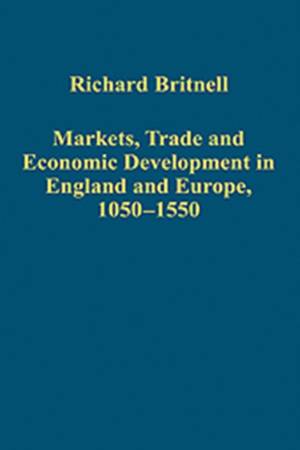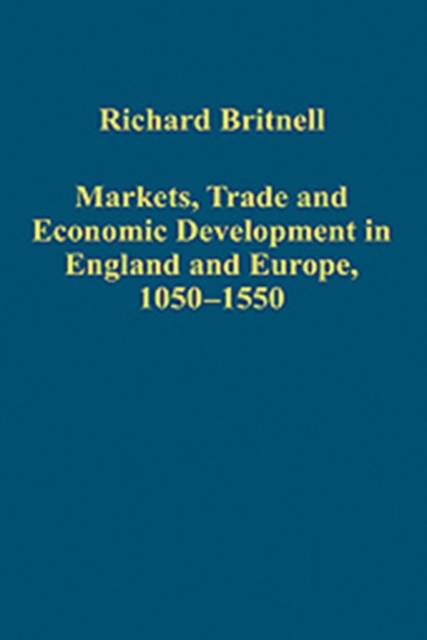
- Afhalen na 1 uur in een winkel met voorraad
- Gratis thuislevering in België vanaf € 30
- Ruim aanbod met 7 miljoen producten
- Afhalen na 1 uur in een winkel met voorraad
- Gratis thuislevering in België vanaf € 30
- Ruim aanbod met 7 miljoen producten
Zoeken
Markets, Trade and Economic Development in England and Europe, 1050-1550
Richard Britnell
€ 244,95
+ 489 punten
Omschrijving
England's economy between 1050 and 1550 mirrored that of much of continental Europe in its growing dependence upon trade over both short distances and long. The essays in this collection are the fruit of forty years of research into the complex and interrelated issues involved. Describing this change can be achieved in part through quantitative indices, such as the number and size of towns, markets and fairs, and the volume of monetary circulation. A full account also requires a discussion of widespread changes of work experience, customary practices and moral values as households became more dependent upon markets. In addition, the evidence of transformative commercial growth in the medieval period gives rise to numerous questions concerning its relationship to more modern times. Modern economic growth and modern capitalism have often been contrasted starkly with medieval economic stagnation and traditionalism, but recent research implies a more continuous process of economic development than that implied by these older stereotypes. Many of the items in this collection are also relevant to this more discursive aspect of medieval commercialisation.
Specificaties
Betrokkenen
- Auteur(s):
- Uitgeverij:
Inhoud
- Aantal bladzijden:
- 350
- Taal:
- Engels
- Reeks:
Eigenschappen
- Productcode (EAN):
- 9780754659839
- Verschijningsdatum:
- 28/04/2009
- Uitvoering:
- Hardcover
- Formaat:
- Genaaid
- Afmetingen:
- 152 mm x 229 mm
- Gewicht:
- 748 g

Alleen bij Standaard Boekhandel
+ 489 punten op je klantenkaart van Standaard Boekhandel
Beoordelingen
We publiceren alleen reviews die voldoen aan de voorwaarden voor reviews. Bekijk onze voorwaarden voor reviews.







